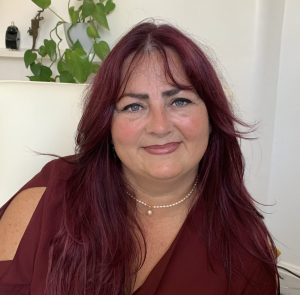 A trauma is a single life event, or a series of life events that were disturbing and has a long lasting psychological impact on the person causing the loss of functions.
A trauma is a single life event, or a series of life events that were disturbing and has a long lasting psychological impact on the person causing the loss of functions.
Events that are traumatic include:
- Sexual abuse in childhood
- Physical abuse in childhood
- Sexual assault
- Physical assault
- Combat
- Being held hostage or imprisoned
- Terrorism
- Torture
- Natural and man-made disasters
- Accidents
- Receiving the diagnosis of a life threatening illness
Symptoms relating to untreated trauma and childhood attachment problems include:
- Post Traumatic Stress (PTS) or Post Traumatic Stress Disorder (PTSD)
- Anxiety
- Depression
- Addictions
- Risk-taking behaviours
- Feeling helpless
- Feeling hopeless
- Obsessions
- Compulsive behaviours
- Phobias
- Irritability, anger and rage, mood swings.
- Guilt
- Shame
- Poor concentration
- Violent behaviours
- Poor sleep patterns
- Dissociation
- Withdrawing
PTSD (Post-Traumatic Stress Disorder)
The symptoms of PTSD are:
- Re-experiencing the traumatic event in a range of sensory forms. This phenomenon is called a flashback.
- Avoiding reminders of the trauma by avoiding or numbing emotions. In some cases, we call it dissociation.
- Chronic hyperarousal of the nervous system. This is called disregulated arousal.
It is important to note that these symptoms are normal to experience immediately after traumatic event. If some of these symptoms persist one month after the traumatic event, a diagnosis of PTSD can be formulated.
When the symptoms of PTSD are chronic, they can lead to psychological disturbances such as:
- Acute anxiety and panic attacks.
- Sleep disturbances.
- Loss of appetite.
- Sexual dysfunctions.
- Difficulties with concentration.
- Difficulties with relationships.
People trying to cope with unresolved psychological trauma often lead an unsatisfying life. Without treatment, it is difficult to recover from the effects of unresolved trauma and its lasting impact on the mind and body.
by Indu Dua, Integrative Counsellor >
When I told my client that their traumatic life experiences are the reasons for their current difficulties, they were surprised. They wondered how losing a friend, having a miscarriage, or experiencing a tumour could be considered trauma.
We are often conditioned to keep moving on without giving ourselves the compassion or love that was deeply needed when we were in the midst of the storm. It feels unfair to me —to build a life on top of suppressed emotions and then spend years fighting to understand why we are behaving in a certain way.
Trauma cannot be defined as one specific type of event or a fixed number of experiences. For some individuals, trauma may stem from a major event such as a natural disaster, serious accident, or violent assault. For others, it may arise from ongoing, less visible experiences like emotional neglect, bullying, or chronic stress. What constitutes trauma varies greatly from person to person, depending on their unique emotional responses, background, and coping mechanisms.
Client sounded surprised after learning they had experienced trauma, “I thought I am resilient?
I invite all of us to look at this: are we saying that shutting off our emotions and moving on is resilience? If that’s resilience, why are we still struggling?”
Resilience is often misunderstood. It’s not about shutting off emotions or simply “moving on” as if nothing happened. True resilience is the ability to experience pain, acknowledge it, and still find ways to heal and grow through it. It’s about feeling the full weight of our emotions, rather than avoiding or suppressing them, and then gradually building the strength to carry them with us—without letting them define or control us.
When people shut down emotionally, it may look like resilience on the outside—but inside, unresolved pain can continue to impact mental, emotional, and even physical well-being. This kind of emotional numbing is more of a survival mechanism than real resilience.
So when we shut down our emotional needs in the name of resilience, we actually run away from it. True resilience involves vulnerability, self-awareness, support, and sometimes asking for help. It’s messy, nonlinear, and deeply human. And yet, it is equally liberating. It helps us move forward—not by pretending the pain never existed, but by learning from it and carrying those lessons into the future.
By Sophia Arthur Uchendu, Integrative Psychotherapist >
In many families, there are hidden stories of pain that have affected family members for
generations. These stories are often about childhood and generational trauma. In therapy we
would focus on these issues to help you find relief and understanding.
What is Childhood and Generational Trauma?
Childhood trauma includes experiences like neglect, abuse, or seeing violence that can upset a child’s emotional growth. These experiences can leave deep scars that might show up as anxiety, sadness/depression, or difficulty in forming close relationships during adulthood. Generational trauma is when these pain points aren’t just experienced by one person but are passed down through families. This can happen through behaviours, emotional reactions, and even small actions that children pick up from their parents. With childhood trauma, it’s not just about what happened but can also be what did not happen that should have.
I care deeply about helping people heal from these traumas. In therapy, we would look at how past traumas and current problems are connected, and then work to stop these issues from continuing. The starting point is to help you understand your own story, which is the first
step to healing. By using psychotherapy and a healthy dose of psychoeducation, I’d give you, by yourself, or with your family/ group the tools you need to move past your traumas.
Healing is possible, and it begins here. It’ll be an honour to go on the journey with you to heal the wounds of the past and look forward to a more settled tomorrow.
By Kate Munden – Trauma Specialist
A traumatic birth is a childbirth experience that may cause a new mother to develop Post Traumatic Stress symptoms. Those who have experienced an overwhelming or traumatic birth can be clinically diagnosed with PTSD. However, many others will experience PTS symptoms without ever being clinically diagnosed. Many mothers mask or ignore symptoms as they and the family focus on the new baby.
PTSD can be described as “a disorder that develops in some people who have experienced a shocking, scary, or dangerous event.”
During childbirth, there are no particular criteria for challenging birth circumstances that will result in PTSD. Just as two plane passengers may experience turbulence differently, two women could experience the same type of birth but one develops postnatal PSTD while the other doesn’t. Trauma is complex and often in the eye of the beholder.
While there are many more instances that may lead to PTS symptoms, the most frequently reported instances are emergency caesarean, a lack of care, respect and compassion from caregivers, or the infant needing to go to Intensive Care.
If you have experienced birth trauma, know that you are not alone. About 45% of new mothers report that they have experienced a traumatic birth. The following is a non-exhaustive list of the signs and symptoms of post-natal PTSD as stated by Mind.
● Excessive tearfulness or feeling very numb and disconnected
● Reliving the event through flashbacks, intrusive thoughts, or nightmares
● Intense distress at reminders of the trauma
● Alertness or feeling on edge causing irritability, feelings of anger, difficulty concentrating, or difficulty sleeping
● Avoiding feelings or being unable to remember details of what happened
● Overwhelming feelings of anger, sadness, guilt, or shame
● Feeling unsafe or like you can’t trust anyone
By Brigida Walkin, Counselling Psychologist >

















